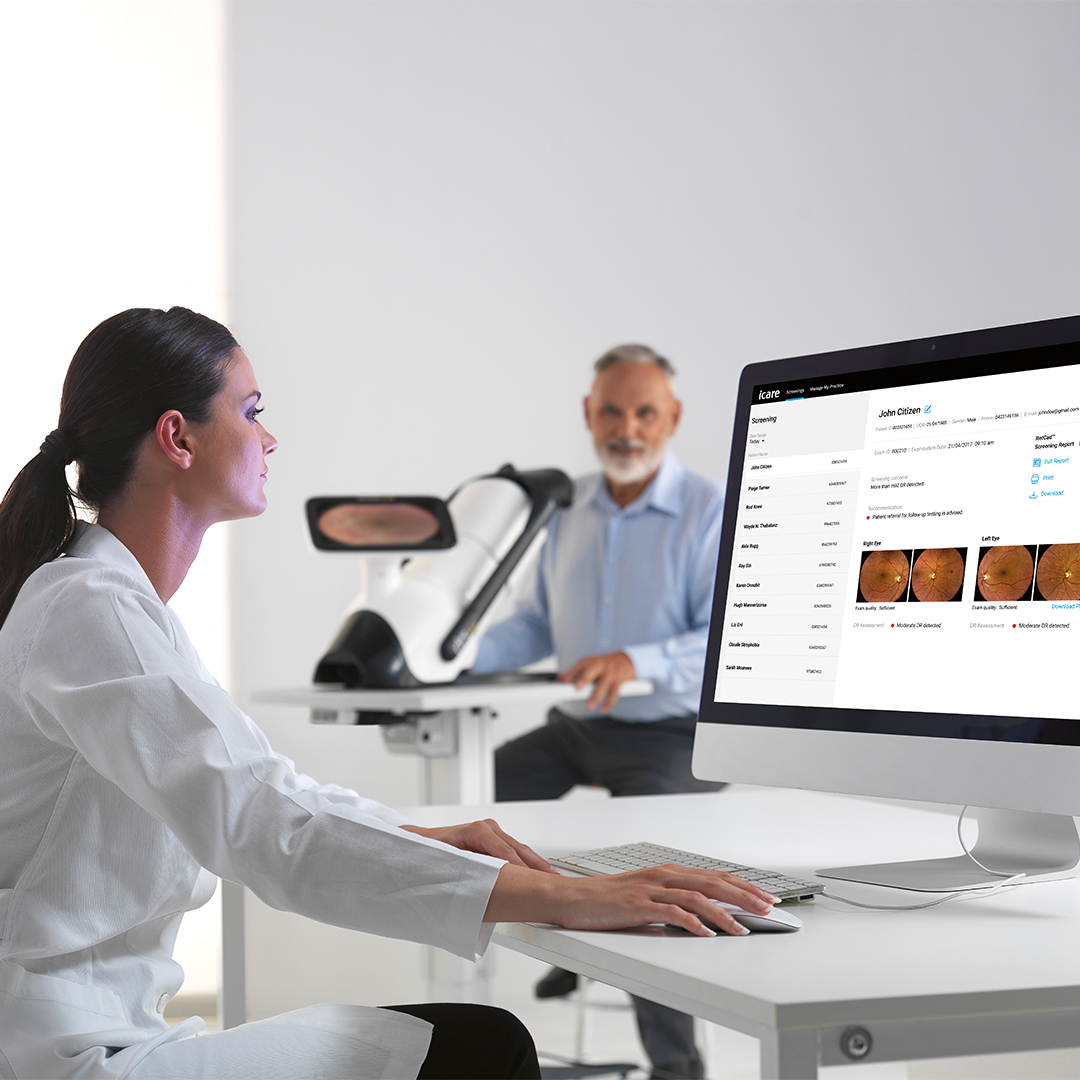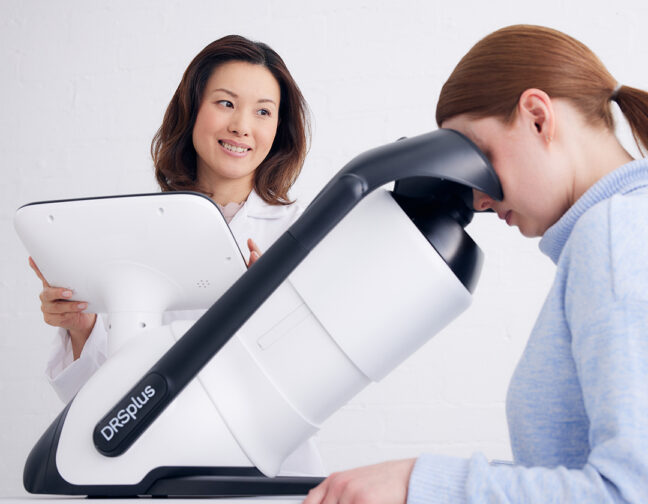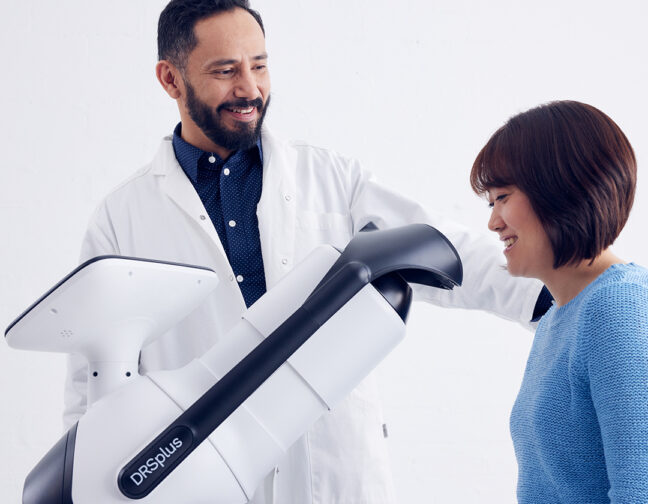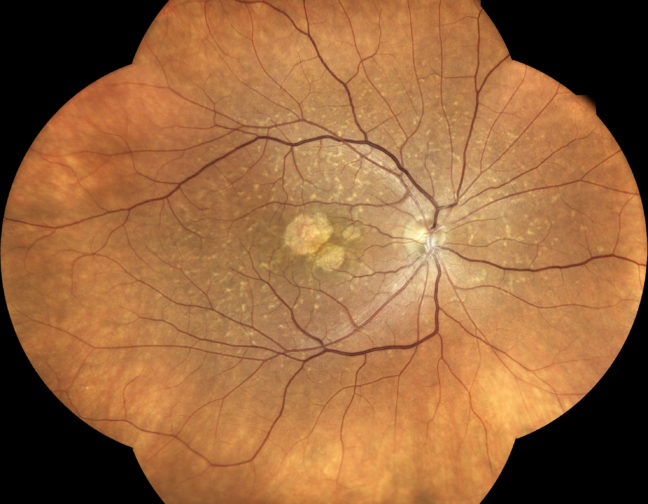Dr. Alberto Piatti, the chief ophthalmologist in a primary health care setting in Turin, Italy, has been actively engaged in diabetic retinopathy (DR) screenings for decades. The diabetic center at the Asl To5 — the local health district in the Turin Metropolitan area where he works — manages approximately 14,000 diabetic patients per year.
In 2019, the health center implemented an integrated DR care pathway between diabetologists and ophthalmologists. The aim was to introduce advancements such as telemedicine and utilizing artificial intelligence for DR grading.
“Technological improvements and especially AI have radically transformed DR screening. iCare’s screening solution with integrated AI has played a significant part in this. At our center, we have switched from other fundus cameras to the iCare DRSplus, which can acquire retinal images without pupil dilation and with a minimum pupil size of 2.5 mm. This is a fantastic outcome for us,” Dr. Piatti says.
iCare ILLUME combines the specialized AI-based screening software RetCAD by Thirona Retina and DRSplus TrueColor Confocal fundus imaging.
The fully automatic and easy-to-use DRSplus means nurses and other healthcare professionals can use it autonomously.
“We can screen 15 patients in an hour and 60-70 patients a day. This truly reduces the work burden of ophthalmologists,” he adds.
iCare ILLUME can accurately and reliably show the DR screening results coming from the connected AI software
The doctor points out that iCare ILLUME-based solution’s high accuracy and convenience make it a particularly useful tool.
“Not all AI solutions can help detect every stage of diabetic retinopathy. Some algorithms can indicate only the presence or absence of retinopathy The AI report can provide a score allowing the severity grading of DR. The sensitivity of the solution in detecting early signs and mild retinopathy is very high and the AI report is very accurate” Dr. Piatti reveals.
Despite the restrictions imposed by the Italian regulatory framework on the use of AI, Dr. Piatti has been able to extensively use the screening solution to conduct a soon-to-be-published study. ”The observational study analyzed the efficacy of DR screening using AI and involved 607 patients who were screened during their annual diabetological check.
An e-poster of the preliminary report was presented in 2023 Euretina hosted in Amsterdam and Ophthalmology Times Europe spotlighted this as one particular standout.
AI reports can help scale up and improve screening programs
“After using iCare ILLUME for the study, I can say that it makes the workflow of screening and the pathway of patients very easy and affordable. Reports are instantly generated and available on computers and even smartphones. AI-based screening solutions such as these allow the screening of a vast population, enhancing efficiency and effectiveness,” Dr. Piatti observes.
The doctor appreciates how the AI report streamlines the referral process by providing accurate retinopathy grading. The report uses the international severity classification (ICDR) ranging from 0 to 4, where 0 indicates no retinopathy, 1-2 signifies mild retinopathy, 2 to 3 indicates moderate retinopathy and 3-4 represents severe DR.
“This is an important feature in the report. In the first two stages, the patient remains in the care of the diabetologist. When the score is equal or greater than 2, the patient is referable and is scheduled for complete ophthalmological control, with visual acuity measurement and OCT,” he says.
The AI report and the images easily integrate into the electronic medical record system, which is accessible across the healthcare network, to diabetologists and ophthalmologists.
Shaping the future landscape of DR screenings
Dr. Piatti hopes that future research and discussions on the efficacy and reliability of AI will further transform the impact it can have on the future of DR screenings.
Another area of exploration is using AI solutions to manage other ophthalmic diseases — for instance, age-related macular degeneration (AMD) detected in diabetic patients undergoing screening for retinopathy.
“We have much to learn and work in the future. Nevertheless, we are satisfied by what we achieved so far,” Dr. Piatti sums up.



